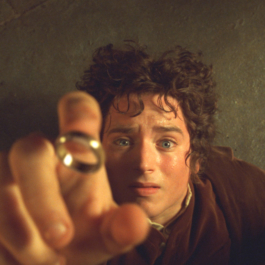A new year has begun… and you’re stuck in a professional rut. Perhaps you have no plan for your career, or maybe you have an idea of what you’d like to do, but are not sure how to go about actualising it. It might be that every week feels like an endless version of Groundhog Day and you’re feeling a little lost, or perhaps you simply know you could do more and can’t stop wondering “what if… ?”
If that’s you, we get it. The circumstances of 2020 made it very difficult to plan ahead, much less think about a career change. Many of us had to put projects on hold while sorting out other priorities; others lost their jobs and may not feel ready to start something new in these uncertain times.
It’s time to bring some positive perspective into your life.
We sat down with career coach, author and leader of the Free Range Humans community Marianne Cantwell to learn how to imagine new possibilities and start following a more conscious path towards the career you would like to have – and life you would like to live.
What would you recommend to someone who feels ‘stuck’ in a certain job or career path?
I would recommend they take stock of what is around them right now. Are they hanging out with people who also feel stuck? What ideas are they taking in every day about their work options? If those ideas aren’t helping, then I would recommend they broaden their inputs. That could be finding a group online with people who feel the same, or reading some books… Or simply think: What is the one thing that you could do either a little more of or a little less of every day, to shift your thinking?
Sometimes, the limits can be in our heads, even if the circumstances are somewhat right…
I agree. I want to reassure readers: No one comes in [my career coaching practice] saying they are in the perfect circumstances. Some say they are too old and established in their careers to make a change, others that they’re too young and inexperienced; some say they only had one type of industry experience, others that they had a too varied career.
One of the most illuminating things people can do is to get together with a group of people who have the same feeling. What’s fascinating is that one might have a vision in their head of the perfect circumstances to make a change, and I can assure you that there’s another who finds himself in those exact circumstances but doesn’t think so. People’s thinking starts to change when they expose themselves to that sort of cross-pollination – I’ve seen it firsthand.
What is the first step in finding a direction, career-wise?
It depends on how connected you are to what I call your ‘internal GPS’. Sometimes we get people coming to Free Range Humans saying: “I have no idea what I love anymore. All I can think of is, I want to lie on a beach and do nothing.”
If you feel that way, think about the experiences that made you feel alive and engaged, and replicate some of them in your day-to-day life. There are things you can do every day, even though they might be completely unrelated to your career. As people start going through that, the light starts coming back into their eyes. That’s when we can start to have real conversations about what it is that they would love doing career-wise.

Can the narrative that one needs to find the ‘One Dream’ be a problem, too?
Yes. There’s a huge myth that in order to find your direction, your job is to find your one big passion, your calling. I can say that in my 10 years of experience of helping people, very, very few people who love what they do have one big passion.
The biggest advice I’d give someone is: don’t look for a topic area that you like the sound of. Don’t try to put the entirety of yourself, of your complex background, of your unique personality, underneath a label. What will matter more for you loving what you do is your day-to-day experience. What are the things that you love doing every day? Start with them.
In your book, you offer suggestions for people evaluating a career change who encounter criticism from others. Could you tell us how to deal with naysayers?
I call them ‘the beige army’, because they are very afraid of anything resembling passion. It’s these people you meet at the office, or at your family gatherings, who always have a snide response whenever you show any passion for something new. Who always question: Who are you to do this?
They have power because they frame themselves as the majority – but they aren’t. They are just very loud. When you hear that sort of smug voice, all you have to tell yourself is: That’s just the beige army. My biggest advice is not to fight them, but whenever possible, to simply step away from that conversation in order to start building up your momentum.

There's a huge myth that in order to find your direction, your job is to find your one big passion, your calling. I can say that in my 10 years of experience of helping people, very, very few people who love what they do have one big passion.
A perhaps even bigger problem to deal with is fear. How would you recommend going about it?
I want to dispel a myth, that people who make a big change don’t experience fear. While I’m sure some do exist, I haven’t met any.
Fear is a completely natural human emotion when you are going through a change. My advice is: Have a look at the story you’re telling yourself about what you want to do. What could this mean for your identity, for your security? If you put yourself out there, what’s the worst thing that could happen? Get it down on paper, and just respond to these questions, reasonably and realistically, one by one.
For each of these answers, ask yourself: What are the odds of that really happening from 1 to 10? Is there a way to do this as a test project – as I recommend in my book – and maybe don’t quit your job just yet?
And then, write down what will happen if you don’t do it, because we tend to discount the unhappiness or the day-to-day malaise of our situations. When you learn to factor that in, it can actually counter the fear, because it gives you a reason to take action.
How can people make these kinds of decisions while still managing their daily needs and costs?
It’s not all or nothing. You don’t have to find a wonderful idea and then quit your job tomorrow. Try out a mini-project in real life, take on a test client, test your idea with a few people. While you’re doing that, you’re taking more and more steps towards your reality, you start to build momentum, and then you can have a different conversation about when it is that you’re ready to leave.

How does the experience of 2020 and COVID-19 influence your advice to people?
First, I would recommend people to be kind to themselves. If COVID-19 has put back your timeline, don’t berate yourself for what hasn’t happened. Instead, realise that most people are in the same boat, and start from where you are.
Second, if you want to stay in your job even though you don’t love it, view it like an investment in your future. Sure, it requires you to show up every day, but in the meantime, you’re building your savings pot, or trialing out your idea, upskilling, etc. – and your investor is still paying you. That is something to be grateful for.
I also want to add that I started my business in a recession. And to this day, I credit that with the fact that I’m actually doing this. I had to learn to make it work without riding a wave. That makes you better at what you do.
Do you think that the switch to online working caused by the pandemic is going to make it easier for some of us to change careers?
Looking back at how things were when I started, I can just say, I wish I was starting out in 2021. For so many reasons, this is genuinely the best time in history to start something without a huge amount of funding, or simply on your own.
The first reason is that, even compared to 10 years ago, you can access tools and systems either for free or at an incredibly low cost, and without advanced technical knowledge. The second reason is there are more people on the internet now than at any other time before – and they are used to buying goods and services online.
What if today is the best moment in history to start your thing?














Sorry, the comment form is closed at this time.